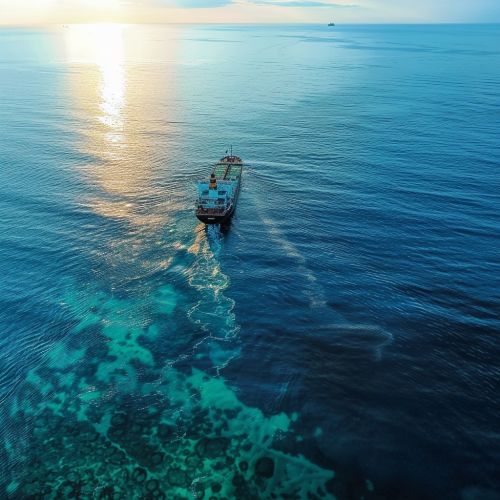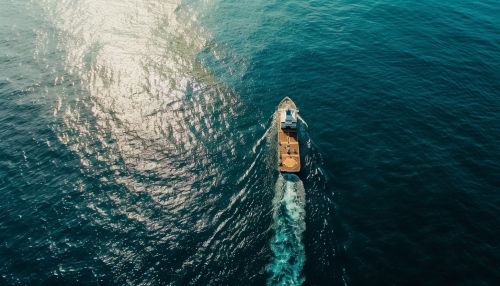Ocean Governance
Introduction
Ocean governance refers to the conduct of the policies, measures, and strategies used to regulate the world's oceans. It encompasses a range of social, economic, and political systems that are used to manage and conserve marine resources and ecosystems. The concept of ocean governance has evolved significantly over time, reflecting changes in our understanding of the marine environment, the development of new maritime technologies, and shifts in geopolitical power dynamics.


Historical Context
The history of ocean governance can be traced back to the ancient civilizations, which had established basic rules and norms for navigating and exploiting the sea. However, the modern concept of ocean governance emerged in the mid-20th century, with the advent of the United Nations Convention on the Law of the Sea (UNCLOS). This international treaty, often referred to as the "constitution for the oceans", provides a comprehensive framework for the regulation of all aspects of the world's oceans and seas, including their use and conservation.
Principles and Objectives
The principles and objectives of ocean governance are primarily derived from international law, particularly UNCLOS. These include the principles of freedom of navigation, peaceful use of the oceans, equitable and efficient utilization of resources, preservation of the marine environment, and the peaceful settlement of disputes. The main objective of ocean governance is to balance the different uses and interests related to the oceans, while ensuring their long-term sustainability.
Key Elements
Ocean governance encompasses several key elements, including:
Legal Framework
The legal framework for ocean governance is primarily provided by international law, particularly UNCLOS. This treaty sets out the legal status of the oceans, the rights and duties of states, and the mechanisms for dispute resolution. It also establishes specific regimes for different maritime zones, such as the territorial sea, the exclusive economic zone (EEZ), and the high seas.
Institutional Mechanisms
A variety of institutional mechanisms are involved in ocean governance. These include international organizations, such as the International Maritime Organization (IMO) and the Food and Agriculture Organization (FAO), regional bodies, such as the Regional Seas Programmes, and national agencies. These institutions are responsible for implementing and enforcing the rules and regulations related to the oceans.
Policy Instruments
Policy instruments are the tools used by governments and institutions to manage and regulate the use of the oceans. These include laws and regulations, economic incentives, voluntary agreements, and information and education programs. Policy instruments are used to address a wide range of issues, such as marine pollution, overfishing, habitat destruction, and climate change.
Stakeholder Participation
Stakeholder participation is a crucial aspect of ocean governance. It involves the engagement of all those who have an interest in the oceans, including governments, the maritime industry, non-governmental organizations, indigenous peoples, and the scientific community. Stakeholder participation ensures that the decisions and actions taken in relation to the oceans are informed by a wide range of perspectives and interests.
Challenges and Future Directions
Ocean governance faces several challenges, including the complexity and dynamism of the marine environment, the multiplicity of users and uses of the oceans, the lack of scientific knowledge, and the difficulty of enforcing rules and regulations. In addition, ocean governance must adapt to emerging issues, such as climate change, ocean acidification, and the development of new maritime technologies.
Future directions for ocean governance may include the development of more integrated and ecosystem-based approaches, the strengthening of international cooperation, the enhancement of scientific research, and the promotion of sustainable maritime development.
